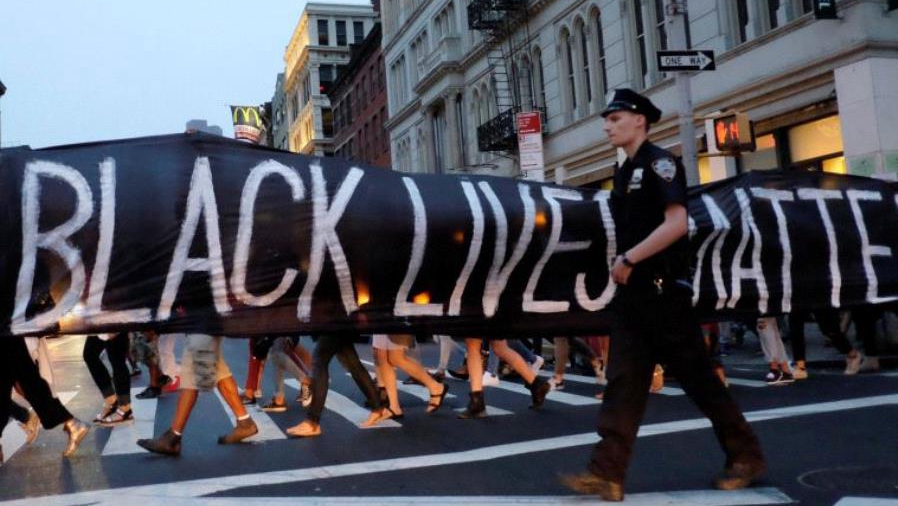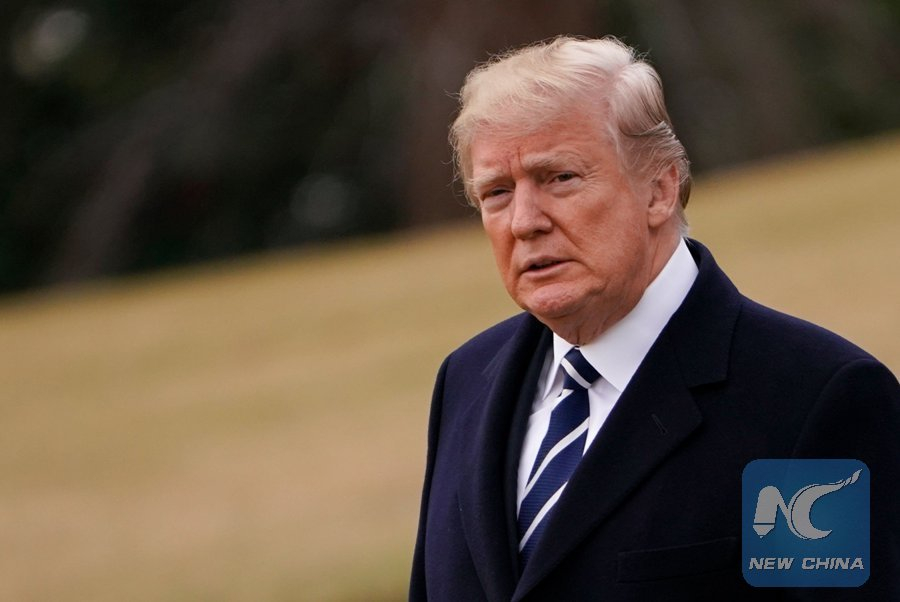
Analysis
18:41, 07-Jun-2019
Mobilizing African American vote key to U.S. Democrats' chances in 2020
Bertram Niles

One of the reasons advanced for Republican Donald Trump's surprise win in the 2016 U.S. presidential election was the decline in the turnout among African American voters, who are overwhelmingly Democrats.
From the record high of 66.6 percent four years earlier when Barack Obama was on the ballot, the rate dropped to 59.6 percent, the first decline in 20 years.
If Democrats wish to retake the White House from Trump in 2020, they are going to have to make sure that African Americans are motivated to go out and vote at historic levels.
Two African Americans – Senators Cory Booker and Kamala Harris – have so far declared as candidates in a crowded Democratic field, but indications are that blacks are more focused on who can best beat Trump rather than having one of their own succeed Obama next time around.
It means that for now at least, they are coalescing behind Joe Biden, Obama's vice president during his two terms and the early front runner. Two polls by CNN, the latest of which was this week, have given Biden about a 40-point lead with black voters among Democratic candidates, compared with a roughly 15-point gap among white voters.
In a YouGov poll in late April, the president's disapproval rating among African Americans was 84 percent with only 9-percent approval.

Donald Trump has not benefited from employment numbers among African Americans. /Xinhua Photo
Donald Trump has not benefited from employment numbers among African Americans. /Xinhua Photo
Why? "They are so sick and tired of being sick and tired of Trump, there's this almost unconscious feeling they're going to go with the candidate that is more likely to beat him," Ron Lester, a pollster who has spent decades surveying the attitudes of black voters, told the Los Angeles Times.
Trump has consistently trumpeted "record" low unemployment figures among blacks in an appeal to African American voters, but the gloss surrounding those figures has faded and there is no sign that he will gain any benefit.
Job creation tops agenda
The number of jobless blacks actually grew to 6.7 percent in April from 5.9 percent in May last year and is still running at about twice the rate for whites. In addition, wage growth has been slower for blacks than whites in the U.S. economic recovery.
A survey by online research firm SurveyMonkey published this week suggested that job creation is the most important for blacks heading into the election year.
"Black America is lagging in its recovery from the recession and demanding more attention to economic issues than white voters," reported the New York Times, which commissioned the survey.
Trump, who got 8 percent of the African American vote in 2016 compared to 88 percent of Hillary Clinton (Obama got 93 percent in 2012), has also offended African Americans in myriad ways.
"His hand-waving at white nationalists; his nominations of judges with a history of championing racially discriminatory policies; his support for restrictive voting measures; his efforts to undermine Obamacare, a program that remains popular with African Americans; his hypocritical approach to criminal justice – backing sentencing reform while remaining indifferent to police misconduct – are some of the reasons African Americans want the president gone," wrote Theodore R. Johnson, a senior fellow at the Brennan Center for Justice in New York.
The Democratic Party, meanwhile, is seeking to shake off the notion that it has been taking one of its core constituencies for granted. This week, the party's national committee organized an African American Leadership Summit in Atlanta to hear directly from black voters.
Voter suppression claims
The three candidates who attended – Biden, Booker and Pete Buttigieg – homed in on an issue that could depress African American turnout in 2020 – alleged suppression of minority voters, who already face electoral obstacles.
Republican-controlled states, in what they say is a bid to prevent fraud, have been implementing tougher identification and registration requirements, but critics say the evidence to back their claims is flimsy.
“It's about making people of color work harder to vote,” Biden told a Democratic fundraiser on the sidelines of the Atlanta conference.
The problem appeared to be particularly acute during the 2018 midterm elections when voter participation was at record levels. Among African Americans, it was 10.8 percent higher than it was at the 2014 midterms, though the increase was less than other demographic groups.
Booker said the Democrats must focus on registering first-time voters of color in “overlooked” communities.
“What we need to do is get people out to vote,” he said.
For his party, that will be a paramount objective in African American communities in 2020.

SITEMAP
Copyright © 2018 CGTN. Beijing ICP prepared NO.16065310-3
Copyright © 2018 CGTN. Beijing ICP prepared NO.16065310-3